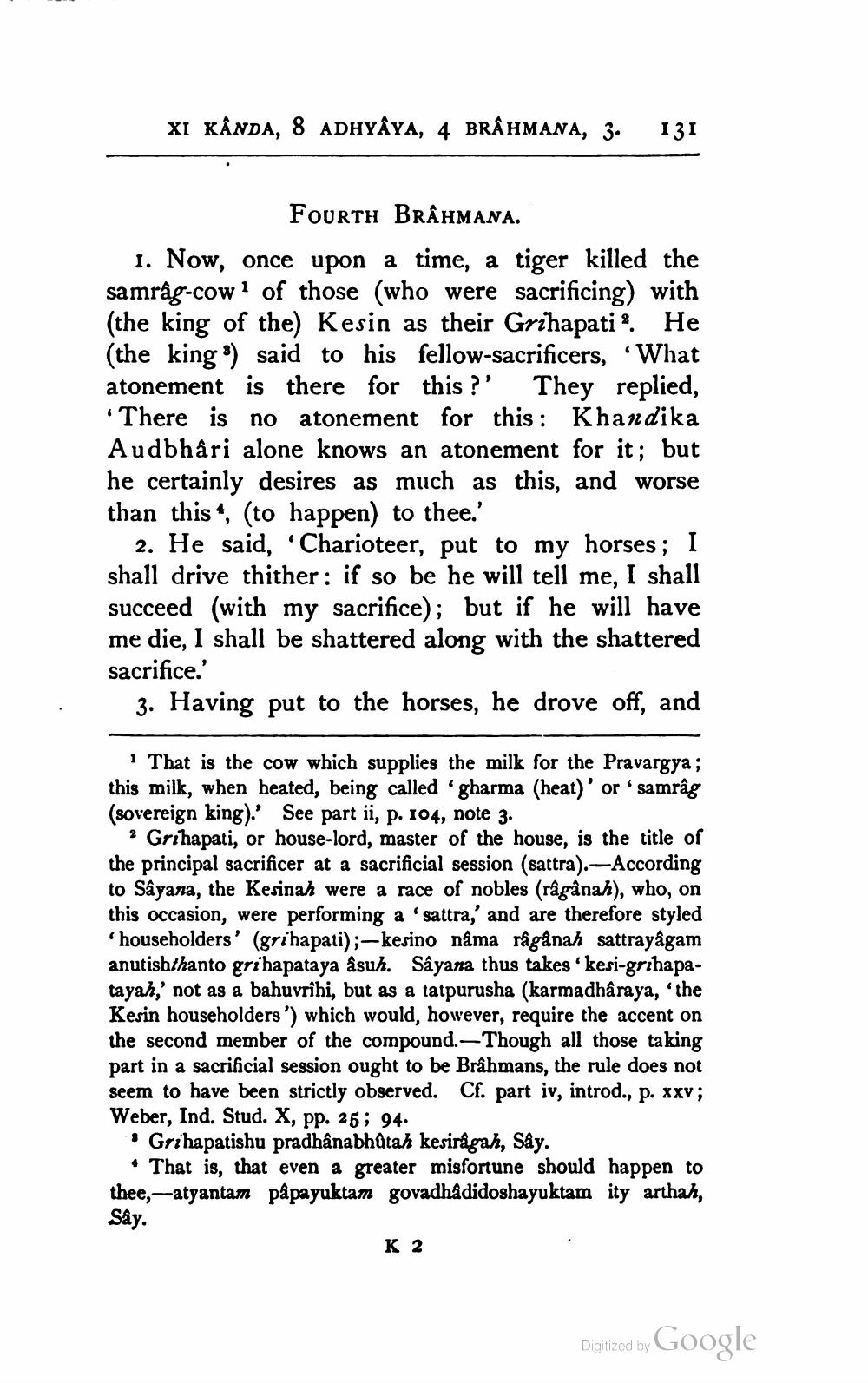________________
XI KÂNDA, 8 ADHYÂYA, 4 BRÂHMANA, 3.
131
Fourth BRAHMANA. 1. Now, once upon a time, a tiger killed the samråg-cowl of those (who were sacrificing) with (the king of the) Kesin as their Grihapati ? He (the king :) said to his fellow-sacrificers, What atonement is there for this ?' They replied, *There is no atonement for this: Khandika Audbhâri alone knows an atonement for it; but he certainly desires as much as this, and worse than this “, (to happen) to thee.'
2. He said, 'Charioteer, put to my horses; I shall drive thither: if so be he will tell me, I shall succeed (with my sacrifice); but if he will have me die, I shall be shattered along with the shattered sacrifice.'
3. Having put to the horses, he drove off, and
That is the cow which supplies the milk for the Pravargya; this milk, when heated, being called 'gharma (heat)' or 'samråg (sovereign king).' See part ii, p. 104, note 3.
2 Grihapati, or house-lord, master of the house, is the title of the principal sacrificer at a sacrificial session (sattra).-According to Sâyana, the Kesinah were a race of nobles (râgånał), who, on this occasion, were performing a 'sattra,' and are therefore styled
householders' (grihapati);— kesino nama rågånah sattrayagam anutishthanto grihapataya asuh. Sâyana thus takes-kesi-grihapatayah,' not as a bahuvrihi, but as a tatpurusha (karmadhâraya, 'the Kesin householders ') which would, however, require the accent on the second member of the compound.—Though all those taking part in a sacrificial session ought to be Brahmans, the rule does not seem to have been strictly observed. Cf. part iv, introd., p. xxv; Weber, Ind. Stud. X, pp. 26; 94.
Grihapatishu pradhanabhůtah kesirågah, Sây. • That is, that even a greater misfortune should happen to thee,-atyantam påpayuktam govadhâdidoshayuktam ity arthah,
Sây.
K
2
Digitized by Google




